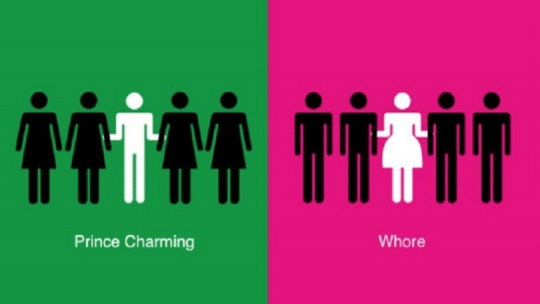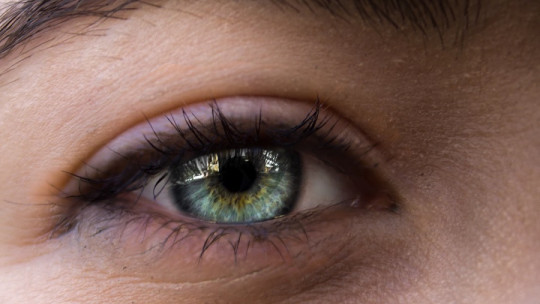The new generations are increasingly more open and there are more and more names to identify all the existing realities. The world, like gender, evolves and changes rapidly. What were believed to be natural truths are now nothing more than socially constructed options. Life is no longer black and white.
Binaryism dies and in its place is born a universe of colors and possibilities that embrace diversity and authenticity. Gender fluid emerges. In this PsychologyFor article we are going to explain to you What is gender fluid and how to know if you identify with this option.
What is gender fluid?
fluid gender or genderfluid it’s a type of gender identity nonbinary whose people who identify with it are characterized by having different gender identities at different times. Most identify as men or women at different times, but it can also happen that they feel both at the same time, that they feel like neither, or that they make combinations. The common characteristic is the fluctuating nature of this identity. In the following articles you will find what gender identity is and how it is formed.
Genderfluid identity is by nature ambiguous and changing , so trying to classify this identity becomes a problematic task, since its individuals establish their own identity parameters. Not only can a fluid gender identity differ greatly from another, but it can also vary over time and circumstances.
Identifying as genderfluid should not automatically be associated with sexual identity, i.e. Being gender fluid does not mean wanting a sex change It should also not be associated with sexual orientation, as a genderfluid person may feel comfortable with a heteronormative sexuality assigned to their apparent physical gender, regardless of how they perceive their psychological gender identity. In this article you will see what the differences are between sex and gender.
An example of gender fluid would be an individual born anatomically male may have heterosexual tendencies, but psychologically identify as something other than a man, including, but not necessarily, a woman.
What it means to be gender fluid
Fluid gender identity, although it seems to be still emerging, It’s not something new Before there were people who felt this way, but they simply did not have any term to be able to put a name to and identify how they felt. So if you couldn’t name it, it didn’t exist. And if you didn’t hide it, they called you sick.
Today, although we have made some progress, we continue to live in a difficult world for those people who feel and are different. In the contemporary Western context, the world of genderfluid people is not considered equal to the dominant heteronormative world and, therefore, the former is subjugated.
Trans or gender fluid people encounter a multitude of negative and oppressive experiences as a result of the rigid gender constriction in which society is mired and the subsequent marginalization that derives from this rigidity. In fact, often face significant barriers to their well-being as a consequence of the social belief that their mere existence only serves the purpose of challenging the dominant gender discourse of “man” or “woman.”
This people frequently experience acts of discrimination and they are exposed to multiple stressors for the simple fact of being who they are. Very little attention has been given in the field of psychology to the ways in which trans or genderfluid people navigate social and personal adversity and embody resilience.
How to know if I am gender fluid
Being of one gender or another is not something innate, so knowing what gender you belong to It depends on what one feels Gender labels are nothing more than words to be able to name what we feel and identify with something.
How do I know if I am genderfluid? If reading the following characteristics you think you feel comfortable adopting the gender fluid label, then you can say that you are:
- You just don’t identify with either gender : You don’t feel comfortable with the gender you were assigned at birth, but you don’t quite feel like you completely belong to the other gender either.
- You feel that your gender identity is somewhat unstable : At some moments or periods of time you feel more masculine and at others more feminine.
- You identify with elements of both genders : There are aspects associated with masculinity that you feel define you, but in the same way you feel that there are aspects associated with femininity that also define you.
- You use gender pronouns interchangeably or you use gender-neutral pronouns. You don’t mind that people sometimes get confused with your pronouns or even prefer that they use neutral pronouns to refer to you.
- Your look is not assigned to any gender or it varies between the two. You like to dress in clothes that are not associated with your sex but also with those that are, it depends on the moment and how you feel.
Remember, these labels are always indicative, never descriptive, and what you feel, like genderfluid, can change. Here you will find the difference between gender fluid and gender non-binary.
This article is merely informative, at PsychologyFor we do not have the power to make a diagnosis or recommend a treatment. We invite you to go to a psychologist to treat your particular case.
If you want to read more articles similar to What is genderfluid and how to know if I am? we recommend that you enter our Social Psychology category.
Bibliography
- Jackson, M. (2011). Re-presenting gender fluid identity in a contemporary arts practice.
- Jaroszewski, S., Lottridge, D., Haimson, OL, & Quehl, K. (2018, April). “Genderfluid” or” Attack Helicopter” Responsible HCI Research Practice with Non-binary Gender Variation in Online Communities. in Proceedings of the 2018 CHI Conference on Human Factors in Computing Systems (pp. 1-15).
- Malaret, J. (2013). “Sticks and stones…”: A Qualitative Exploration of the Resilience Process of Transgender and Gender Fluid Persons: A Research Proposal. Alliant International University.









